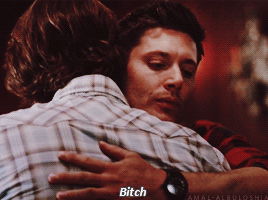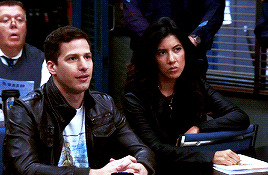The Psychology Behind Fandoms

What do you think of when you first read the word “fandom”? The Google definition describes “fandom” as the fans of a particular person, team, fictional series, etc., regarded collectively as a community or subculture. Basically, Google’s correct. Yet, if that’s all it is, then how come fandoms have become a huge part of today’s culture? Why have so many of us invested ourselves into being trekkies or superwholockians or potterheads? What’s so appealing about being a fan?
To figure that out, you’re going to have to dive into the mindset of the people who make up these fandoms.

The Psychology Behind “Fandoms”
There are several reasons why fandoms are so prevalent within society.
Fandoms promote a community vibe.
Most of the people joining fandoms start in their early teens or tweens. At that age, when everything is changing, from puberty to friend circles to school to identity, they find themselves lost within a light-speed world. They’re simply looking for an anchor, a haven from the whirlwind. I stumbled into fandoms while in a library, burying my head between the shelves. Those books became my safe place. Some discover them through books, some through multimedia like film and television, some through plays and musicals, some through music, and some through all of the above.
Either way, to be surrounded by a community of people all over the globe who appreciate, contribute, and support something you’re interested in is something that all humans crave. The wish for social interactions that many fulfill through sports and extra-curricular activities are fulfilled for others through fandoms. Within fandoms, we feel wanted, we feel appreciated, and we feel as if we are making a difference whether we support or create.

Fandoms encourage creativity and stimulation of the imagination.
The fandom can’t be maintained by the element alone. It’s the fans who create the environment. The contributions to appreciation of an element are absolutely mind-blowing. Art, fashion, writing, analysis and critique. The quality of it is insane! The conventions that are created and center around the appreciation of these elements can be found on every continent. Inspiration can come from anywhere within fandoms. The sheer size of the creative output is overwhelming. Websites, merchandise, and conventions. There is a vast system of creativity and imaginative ability simply because people began to appreciate a single element. Because of that single element, they were brought together through their imagination.

Fandoms provide a healthy support system.
With so many mental illnesses coming to light today, it’s hard to find many that truly understand. Now, I’m not saying that everyone who is part of a fandom has mental illness, because that would be a lie. What I am saying is that those who do have mental illness within a fandom are able to find support through the other people that share their interests.
Fandoms are groups that merely serve as an outlet for community and enjoyment. And for many with depression, anxiety, and other mental illnesses, any possible enjoyment or happiness they can scrape together is a light within their life. Should they not be able to do so with a healthy element instead of drugs, alcohol, or other addictive substances? Should they not attempt to find something to make them smile? If they can do so through fandoms, through creative elements, through the people who enjoy what they do, why would anyone try to stop them?

Fandoms promote connection.
Communities can exist without connection. It’s pretty easy for people to live together without bonding (College roommates, anyone?). Yet fandoms create a connection between people that is tough to sever. With each fandom, people tie a heart-string, a piece of themselves, to the appreciation and promotion of that element. This includes a promotion of positive communication such as sharing ideas, healthy debates, inclusion, meshing of creativity, and more. There are such things as “mutuals” in which two people within a fandom may not know each other very deeply, yet support each other creatively. Sometimes mutuals will never communicate, sometimes they will end up meeting in person, but it depends on the individuals. Such a connection without words, created simply by having a common interest. Isn’t that powerful?

There are so many kinds of fandoms out there today. Some have even been passed down through generations. Stories like JRR Tolkien’s Lord of the Ring’s and CS Lewis’ The Chronicles of Narnia have been passed down from parents to children. Soon, JK Rowling’s Harry Potter series and Suzanne Collins’ The Hunger Games chronicles will be following in their steps. Multimedia like Star Trek, Star Wars, and Doctor Who have seen a few generations now will no doubt live on through many more. The routes of fandom-hood begins when we’re young and we grow up to explore so many more hidden roads. We can’t help but to learn to love new discoveries, to eventually return to the old ones in time. It’s in our nature.
So what do you think when you read the word “fandom”?
I think “home”.
“I’ll be a story in your head. But that’s okay; we’re all stories, in the end. Just make it a good one, eh? Because it was, you know, it was the best…”
The Doctor // Doctor Who; “The Big Bang”
Art by thesheepenthusiast
Fandoms by gif order: Sherlock, Supernatural, Harry Potter, Star Trek, Brooklyn 99
Edited by Viveca Shearin




Responses